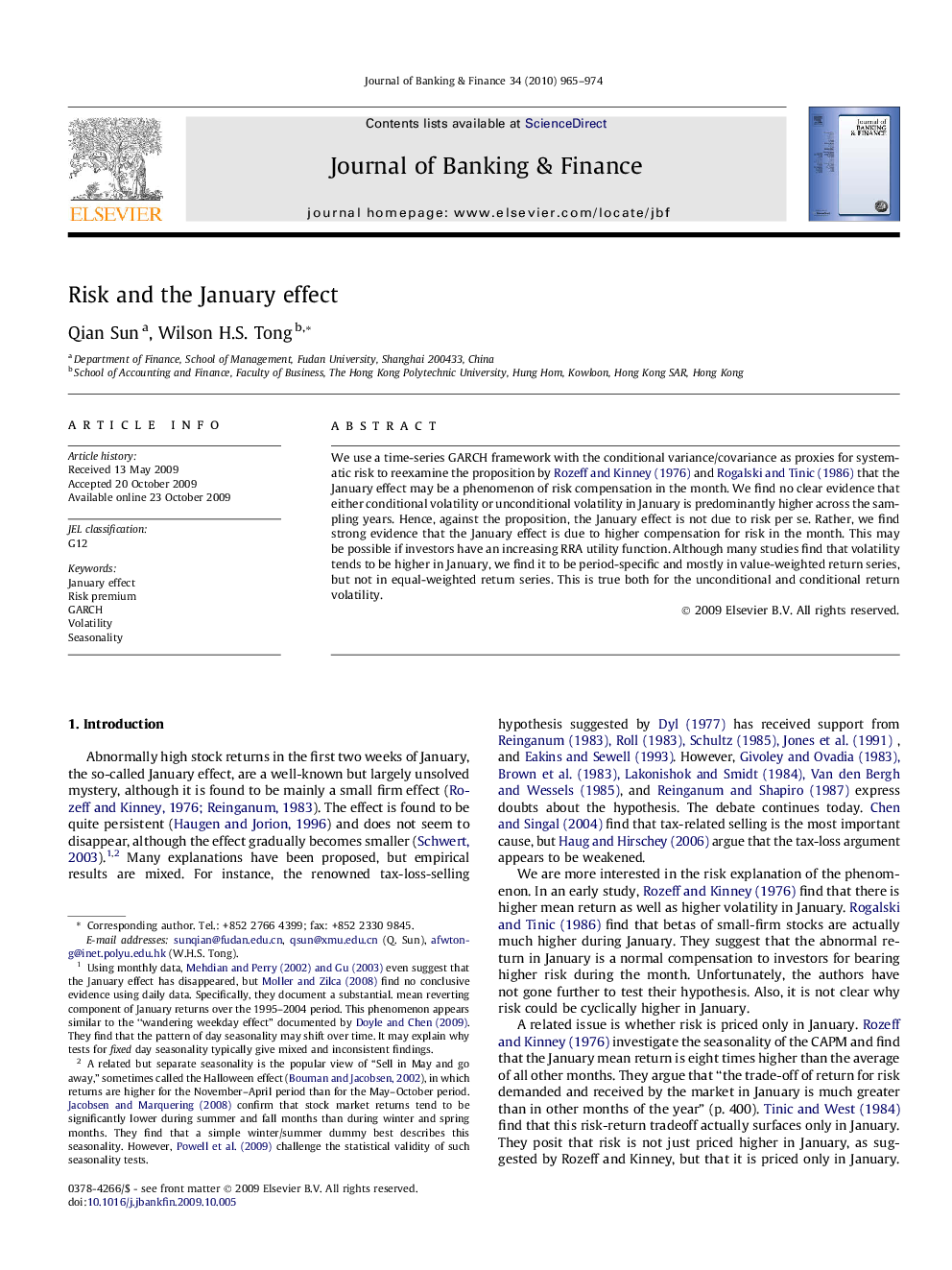| Article ID | Journal | Published Year | Pages | File Type |
|---|---|---|---|---|
| 5090289 | Journal of Banking & Finance | 2010 | 10 Pages |
Abstract
We use a time-series GARCH framework with the conditional variance/covariance as proxies for systematic risk to reexamine the proposition by Rozeff and Kinney (1976) and Rogalski and Tinic (1986) that the January effect may be a phenomenon of risk compensation in the month. We find no clear evidence that either conditional volatility or unconditional volatility in January is predominantly higher across the sampling years. Hence, against the proposition, the January effect is not due to risk per se. Rather, we find strong evidence that the January effect is due to higher compensation for risk in the month. This may be possible if investors have an increasing RRA utility function. Although many studies find that volatility tends to be higher in January, we find it to be period-specific and mostly in value-weighted return series, but not in equal-weighted return series. This is true both for the unconditional and conditional return volatility.
Related Topics
Social Sciences and Humanities
Economics, Econometrics and Finance
Economics and Econometrics
Authors
Qian Sun, Wilson H.S. Tong,
